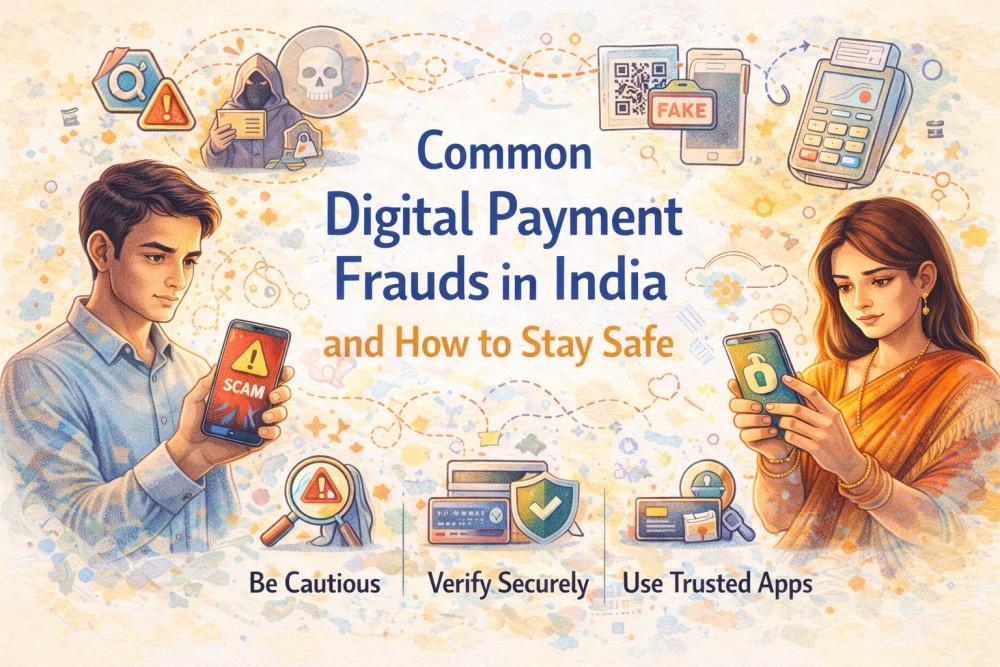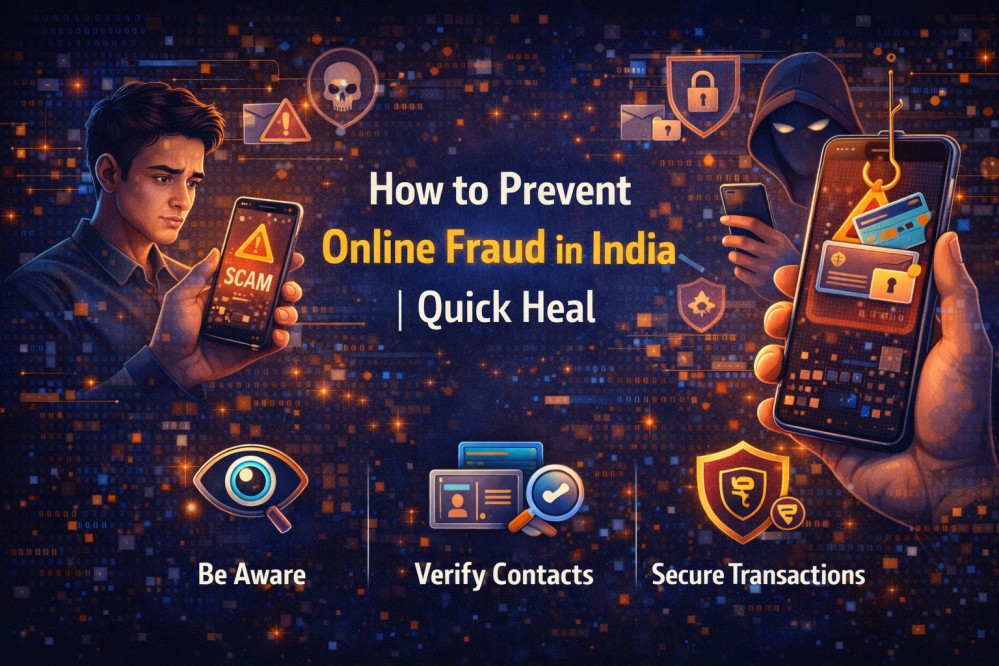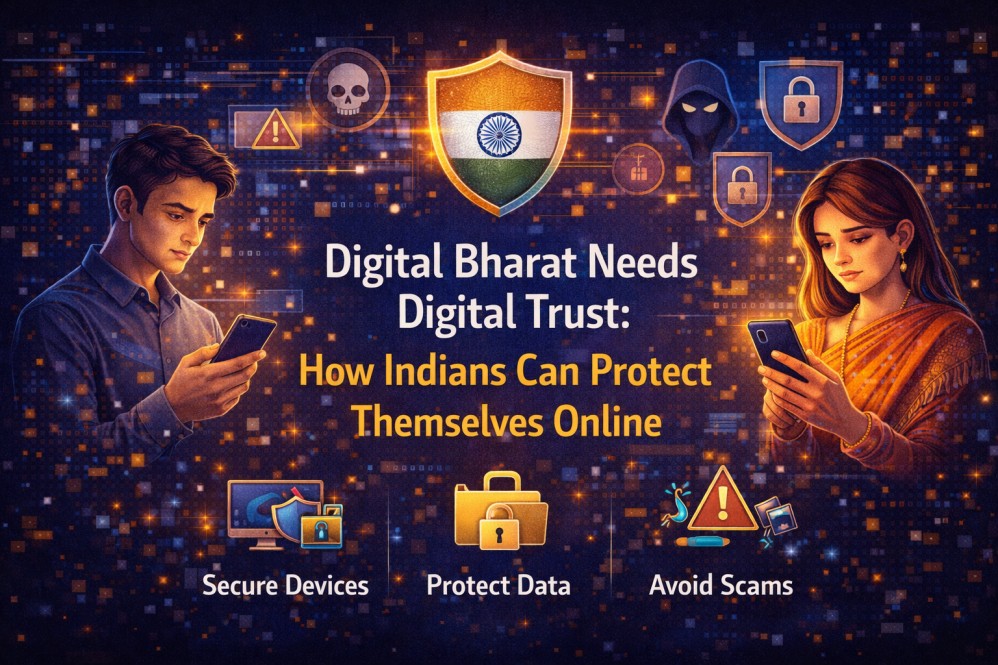
Sep

What is Voice Phishing and How to Avoid Vishing Scams
-
Quick Heal / 6 months
- September 4, 2025
- 0
Every day phone calls are meant to connect us with family, friends, or work. But the same channel is now being used by fraudsters to trick people into giving away personal details. These phone-based scams, called voice phishing scams or vishing attacks, have become a growing concern in India. From fake bank alerts to urgent loan offers, such calls are designed to create panic and extract sensitive information. Knowing how they work and how to respond is the first step to staying safe.
Understanding Voice Phishing
Voice phishing attack, often called vishing, is a type of fraud where criminals use phone calls to deceive people. Instead of sending links or emails like in a phishing attack, scammers speak directly to the target. Their goal is to build pressure or trust, so the person shares bank details, passwords, or other private information.
For example, you might get a call from someone pretending to be your bank’s representative. The caller may ask you to confirm your account number or OTP. Since the voice on the other side feels real and convincing, many people end up believing it.
How Vishing Scams Work
Fraudsters use a mix of technology and psychology to carry out these scams. Some common methods include:
- Caller ID spoofing: The number displayed on your phone looks genuine, often matching that of a bank or service provider.
- Robocalls: Automated recordings that sound urgent, asking you to take quick action.
- Live call scams: A person talks directly, pretending to be a trusted official, customer care agent, or even a friend.
- Emotional manipulation: Creating fear by saying your account will be frozen, or excitement by offering an unexpected reward.
- Urgency tactics: Scammers often insist that you must act immediately, leaving no time to think.
A typical example of vishing is a fraud alert call where someone claims to be from your bank’s security team. They might say suspicious activity has been noticed and ask you to verify your details right away.
Most Common Examples of Vishing Scams
Here are some common forms of vishing in India today:
- AI-based vishing: Fraudsters use artificial voices to mimic customer care or even family members.
- Robocalls: Automated voices instruct you to press a number for urgent action.
- Caller ID spoofing: Displaying official-looking numbers to gain trust.
- Bank impersonation: Fake calls pretending to be bank officials asking for OTPs or PINs.
- Romance scams: Strangers gain trust through calls and then request money.
- Loan or investment offers: Promises of easy loans or quick investment returns to trap people.
How to Protect Yourself from Vishing
The safest defence against vishing is awareness and caution. Some practical steps include:
- Verify independently: If you get a suspicious call, hang up and dial the official number of the institution.
- Do not share sensitive data: Banks, telecom operators, or government bodies never ask for passwords or OTPs over phone calls.
- Recognise red flags: Pressure, threats, or offers that sound too good to be true should be seen as warning signs.
- Use call-blocking tools: Enable phone settings or security apps that can block spam or fraud calls.
- Educate family: Elderly family members and young users are often targeted. Share safety tips with them.
For better digital safety across your devices, you can explore secure mobile and secure multiple device solutions that help reduce risks from fraudulent calls and other online threats.
What to do if you receive a Suspicious Call
If you ever face a possible scam call, take the following steps immediately:
- Do not engage: If the caller pressures you, hang up straight away.
- Check legitimacy: Call back using official numbers listed on the bank or company websites.
- Report the call: Inform your bank, telecom operator, or cybercrime helpline about the incident.
- Monitor accounts: Keep track of recent transactions in case any misuse has occurred.
If someone insists on money or private details, treat it as a clear sign of fraud and end the call without delay.
How to Prevent Vishing
Quick Heal offers security features that can alert you against such fraud calls:
- Call Forward Alert: Notifies you if your calls are being secretly redirected without your knowledge.
- Fraud Call Vishing Alert: Warns you about suspicious incoming numbers, helping you avoid falling into a trap.
You can read more about these preventive features here: How to prevent vishing.
Conclusion
Voice phishing and vishing fraud are not just technical tricks but social ones. Scammers rely on fear, trust, and urgency to make people share information they should not. By staying alert, verifying calls through official channels, and educating those around you, you can lower the risk. With the proper habits and tools, you can stay digitally safe and protect your money as well as your identity.
Frequently Asked Questions
-
What is vishing vs phishing?
Phishing usually involves fake emails or links that try to steal information. Vishing, on the other hand, is carried out through phone calls where scammers directly speak to the target.
-
What happens if you answer a phishing call?
Answering itself is not harmful, but if you follow instructions or share private details, your information may be misused. Always hang up if the caller feels suspicious.
-
How can I stop phishing calls?
You can use call blocking apps, enable fraud alerts, and avoid answering unknown numbers. Reporting such calls also helps telecom providers filter them out.
-
What is the primary objective of a vishing scammer?
Their goal is usually to steal money or personal data. This may include banking details, identity documents, or passwords that can be misused for fraud.






